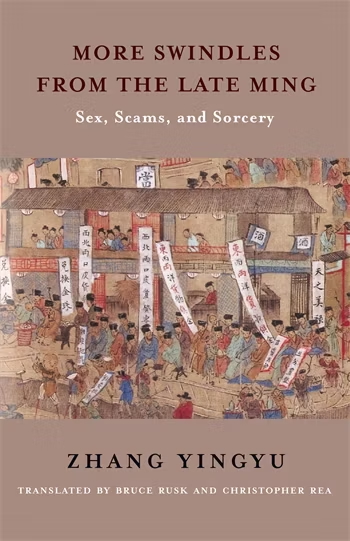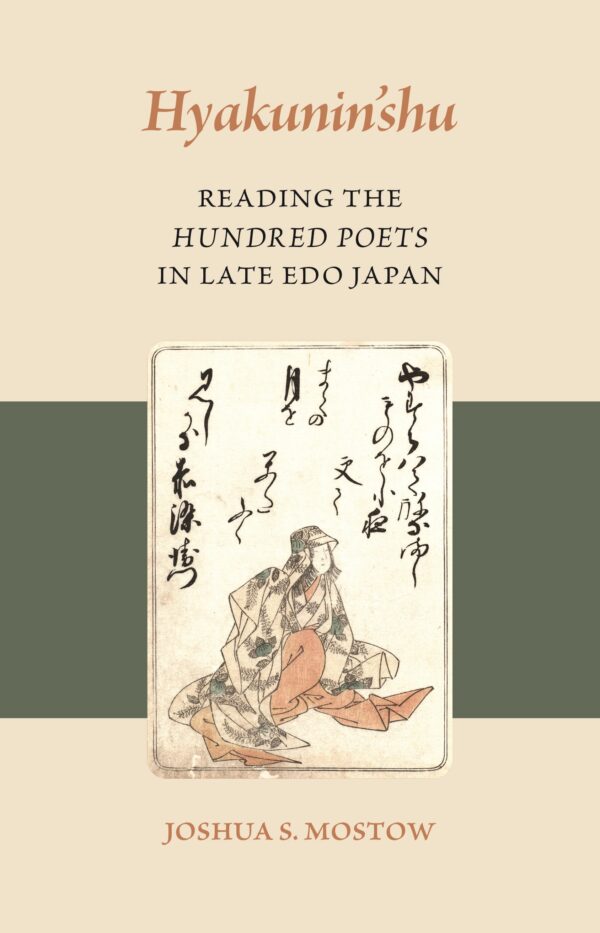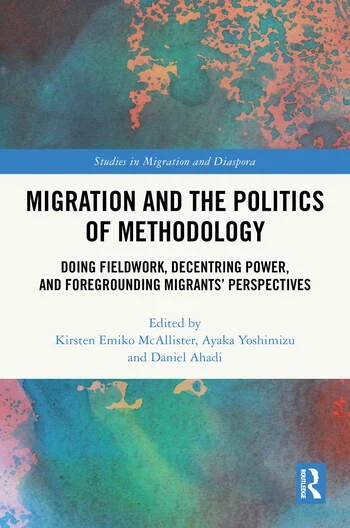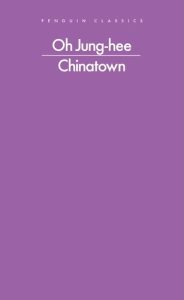2025/2026 Lecturer in Japanese Language
Apply Here | Equity Survey
Application deadline: January 05, 2026
Date of posting: November 03, 2025
The Department of Asian Studies at the University of British Columbia (Vancouver Campus) invites applications for the position of Lecturer in Japanese Language, commencing August 1, 2026.
This is a full-time appointment for a term of up to five years, including a probationary first year. Lecturer positions at UBC are appointments without review (i.e., non-tenure-track), renewable for successive terms subject to availability of funds and demonstration of excellence in teaching and service, in accordance with the Collective Agreement between UBC and the UBC Faculty Association.
A full‐time Lecturer in the Faculty of Arts is responsible for 24 teaching credits annually (i.e., eight 3‐credit courses), typically with a 3‐3 load in the Winter sessions and two courses or one intensive 6‐credit course in one of the Summer sessions. The successful candidate will teach undergraduate Japanese Language courses at all levels. The workload for this position also includes service assignments.
Qualifications
We seek an exceptional and experienced teacher of Japanese Language courses with demonstrated interest and expertise in innovative curriculum design and pedagogy.
Requirements include: a Master’s degree or PhD degree in Japanese Linguistics, Applied Linguistics, Teaching Japanese as a Second or Foreign Language, or a closely related field; evidence of teaching excellence; full professional fluency in both Japanese and English; extensive experience in teaching all levels of Japanese language courses at the college or university level in North America; experience in supervising, training and/or working collaboratively with colleagues, including parallel session instructors and/or TAs; experience in organizing co- and extra-curricular activities; evidence of teaching innovation (e.g., technology-enhanced instruction, community-based learning); a strong track record of full participation in team work and program affairs; and evidence of keeping abreast with recent developments in the field. Experience and a commitment to teaching upper-level content-based or special-purpose courses such as business Japanese, Japanese media, or topics on Japanese language, culture, and society will be an asset.
Expectations
The successful candidate will be expected to maintain an excellent record of teaching, engage actively in professional development, and team-based curriculum design and development of teaching materials, perform instructional responsibilities in coordination with other instructors, as well as participate actively in program affairs, service, and student engagement.
Salary
The expected pay range for this position is $6,867 – $8,583/month. Salary will be commensurate with qualifications and experience. This position is subject to final budgetary approval.
Application Materials:
The application dossier should include the following:
- Application letter
- Curriculum vitae (with the names and contact information for three referees who will provide confidential letters of recommendation)
- Statement of teaching philosophy
- Sample teaching videos for two courses, preferably one for a lower-level course and one for an upper-level one
*Applicants are required to upload their teaching demos to YouTube as unlisted public videos and to send the links as part of their application submission. - Lesson plans for each of the lessons shown in the sample teaching videos
- Two sample course syllabi, preferably one at the lower-level and one at the upper-level
- Evidence of teaching effectiveness
- A 1-page statement about your experience working with a culturally diverse student body and contributions or potential contributions to advancing a culture of equity, diversity and inclusion.
Submission Process
- All application materials should be submitted online at https://asia.ubc.ca/about/job-opportunities/ .
- The deadline for receipt of application materials is January 5, 2026.
- Applicants must also arrange for three confidential reference letters (in PDF format) to be sent directly by the referees to asia.jobsearch@ubc.ca by the deadline.
Equity and Diversity
Equity and diversity are essential to academic excellence. An open and diverse community fosters the inclusion of voices that have been underrepresented or discouraged. We encourage applications from members of groups that have been marginalized on any grounds enumerated under the B.C. Human Rights Code, including sex, sexual orientation, gender identity or expression, racialization, disability, political belief, religion, marital or family status, age, and/or status as a First Nation, Metis, Inuit, or Indigenous person.
All qualified persons are encouraged to apply; however, Canadian citizens and permanent residents of Canada will be given priority.
For inquiries, please contact: asia.jobsearch@ubc.ca.
For information about the Department, please visit https://asia.ubc.ca.
Korean New Religions by Don Baker (2025)
Publication title: Korean New Religions
Publication year: 2025
Author: Don Baker

About the book
Korea has an unusually diverse religious culture. In the north, Juche, which has taken on religious overtones, monopolizes articulations of beliefs and values as well as ritual practice. In the south, no single religion dominates, with over half saying that they have no specific religious affiliation. The remainder report being Protestant, Buddhist, and Catholic. Smaller in number but nonetheless noticeable are members of Korea’s many home-grown new religious movements. Reflecting South Korea’s religious diversity, some of those new religions have Buddhist roots, some have Christian origins, some draw on Confucian beliefs and practices, and some have emerged from Indigenous religious traditions such as shamanism. This Element examines the most noticeable of Korea’s new religions to discover what they can tell us about distinctive traits of religion in Korea, and how Koreans have responded to the challenge posed by modernity to their traditional beliefs and values.
Decolonizing Knowledge: Looking Back, Moving Forward co-edited by Sunera Thobani (2025)
Publication title: Decolonizing Knowledge: Looking Back, Moving Forward
Publication year: 2025
Author: Co-edited by Sunera Thobani and Radha D’Souza

About the book
Decolonizing Knowledge draws on intellectual histories of anti-colonial thinkers who developed their ideas of decolonization through practical engagement with struggles for freedom from colonialism. Reading works by J.P.S. Uberoi, Frantz Fanon, Aimé Césaire, C.L.R. James and Andaiye, among others, interdisciplinary activist scholars reflect on the meaning of decolonization that emerged from anti-colonial struggles of the past and its relevance today.
Each chapter in the volume reflects on one or more texts from anti-colonial thinkers of the past to draw out the meaning of decolonization as conceptualized by earlier generations, providing key insights from their thinking and examining their relevance for contemporary struggles for racial, gender and class justice. With authors writing from multiple disciplines, these essays straddle a range of themes from theory and practice, art and literature, gender and violence, and political economy, to address a subject that is preoccupying academia and activists in the 21st century.
Decolonizing Knowledge is an intervention into contemporary debates on decolonizing curricula and universities, arguing that these calls need to be firmly engaged in wider social practices for justice, and that they can learn much from those who wrote on the topic amid the 20th century’s many struggles for freedom.
Lecturer in Modern Chinese Literature and Cinema 2025
Apply Here | Equity Survey
Application deadline: August 04, 2025
Date of posting: July 3, 2025
University of British Columbia
Lecturer in Modern Chinese Literature and Cinema
The Department of Asian Studies at the University of British Columbia (Vancouver campus) is accepting applications for the position of Lecturer in Modern Chinese Literature and Cinema, commencing Sept. 1, 2026.
This is a full‐time position for a term of up to five years, which includes a probationary first year. Lecturer positions are appointments without review (i.e., non‐tenure track), renewable for successive terms, subject to availability of funds and demonstration of excellence in teaching and service, in accordance with the Collective Agreement between UBC and the UBC Faculty Association.
A full-time Lecturer in the Faculty of Arts is responsible for 24 teaching credits (i.e., eight 3-credit courses) annually, typically with a 3‐3 load in the Winter sessions and 2 courses or one intensive 6-credit course in one of the Summer sessions. The successful candidate will teach undergraduate courses in modern Chinese literature, culture, and cinema, primarily in English (ASIA-prefix or ASIX-prefix content-based courses), and in Chinese (CHIN-prefix advanced language courses) as needed. The workload for this position also includes service assignments.
Requirements include: A PhD in Chinese Literature, Chinese Cinema, or a related field (ABD candidates must expect to have successfully defended the dissertation before Sept. 1, 2026); full professional fluency in Mandarin Chinese and English; extensive teaching experience in related fields at the college/university level in North America; and commitment to teamwork and service. Desirable qualifications include demonstrated interest and experience in technology-based instruction and curriculum development.
The successful candidate will be expected to maintain an excellent record of teaching, active engagement in professional development and team-based curriculum design/development of teaching materials, perform instructional responsibilities in coordination with other instructors, as well as fully participate in program affairs and service.
The expected pay range for this position is $6,867 – $8,583/month. Salary will be commensurate with qualifications and experience. This position is subject to final budgetary approval.
The application dossier should include: application letter; curriculum vitae; statement of teaching philosophy; sample undergraduate course syllabi for one content-based (ASIA) course on modern Chinese literature, culture, or cinema and one advanced language (CHIN) course; evidence of teaching effectiveness; a one-page statement about your experience working with a diverse student body and your contributions or potential contributions to creating/advancing a culture of equity and inclusion; the contact information for three confidential referees; and a link to one sample teaching video, uploaded to YouTube (or equivalent platform) as an unlisted video.
All application materials should be submitted online at https://asia.ubc.ca/about/job-opportunities/. The deadline for receipt of application materials is August 4, 2025.
Equity and diversity are essential to academic excellence. An open and diverse community fosters the inclusion of voices that have been underrepresented or discouraged. We encourage applications from members of groups that have been marginalized on any grounds enumerated under the B.C. Human Rights Code, including sex, sexual orientation, gender identity or expression, racialization, disability, political belief, religion, marital or family status, age, and/or status as a First Nation, Métis, Inuit, or Indigenous person. All qualified candidates are encouraged to apply; however, Canadians and permanent residents will be given priority.
For information about the Department, please visit https://asia.ubc.ca .
More Swindles from the Late Ming: Sex, Scams, and Sorcery translated by Christopher Rea and Bruce Rusk (2024)
Publication title: More Swindles from the Late Ming: Sex, Scams, and Sorcery
Publication year: 2024
Author: Translated by Christopher Rea and Bruce Rusk
About the book
A woman seduces her landlord to extort the family farm. Gamblers recruit a wily prostitute to get a rich young man back in the game. Silver counterfeiters wreak havoc for traveling merchants. A wealthy widow is drugged and robbed by a lodger posing as a well-to-do student. Vengeful judges and corrupt clerks pervert the course of justice. Cunning soothsayers spur on a plot to overthrow the emperor. Yet good sometimes triumphs, as when amateur sleuths track down a crew of homicidal boatmen or a cold-case murder is exposed by a frog. These are just a few of the tales of crime and depravity appearing in More Swindles from the Late Ming, a book that offers a panorama of vice—and words of warning—from one seventeenth-century writer.
This companion volume to The Book of Swindles: Selections from a Late Ming Collection presents sensational stories of scams that range from the ingenious to the absurd to the lurid, many featuring sorcery, sex, and extreme violence. Together, the two volumes represent the first complete translation into any language of a landmark Chinese anthology, making an essential contribution to the global literature of trickery and fraud. An introduction explores the geography of grift, the role of sex and family relations, and the portrayal of Buddhist clergy and others claiming supernatural powers. Opening a window onto the colorful world of crime and deception in late imperial China, this book testifies to the enduring popularity of stories about scoundrels and their schemes.
Hyakunin’shu: Reading the Hundred Poets in Late Edo Japan by Joshua S. Mostow (2024)
Publication title: Hyakunin’shu: Reading the Hundred Poets in Late Edo Japan
Publication year: 2024
Author: Joshua S. Mostow
About the book
Hyakunin’shu: Reading the Hundred Poets in Late Edo Japan explores the “popular literary literacy” of the Japanese at the edge of modernity. By reproducing and translating a well-known annotated and illustrated Ansei-era (1854–1859) edition of the Hyakunin isshu—for hundreds of years the most basic and best-known waka primer in the entire Japanese literary canon—Joshua Mostow reveals how commoners of the time made sense of the collection. Thanks to the popularization of the poems in the early modern period and the advent of commercial publishing, the Hyakunin’shu (as it was commonly called) was no longer the exclusive intellectual property of the upper classes but part of a poetic heritage shared by all literate Japanese.
Mostow traces the Hyakunin’shu’s history from the first published collections in the early sixteenth century and printed commentaries of formerly esoteric and secret exegesis to later editions that include imagined portraits of the poets and, ultimately, pictures of the “heart”—pictorializations of the meaning of the poems themselves. His study illuminates the importance of “variant One Hundred Poets,” such as the Warrior One Hundred Poets, in popularizing the collection and the work’s strong association with feminine education from the early eighteenth century onward. The National Learning (Kokugaku) movement pursued a philological analysis of the poems, leading to translations of the Hyakunin’shu into contemporary, vernacular, spoken Japanese. The poems eventually served as the basis of a card game that became a staple of New Year festivities.
This volume presents some innovations in translating premodern Japanese poetry: in the Introduction, Mostow considers the Hyakunin’shu’s reception during the Edo, when male homoerotic relationships were taken for granted, and makes the case for his translating the love poems in a non-heteronormative way. In addition, the translated poems are lineated to give readers a sense of the original edition’s chirashi-gaki, or “scattered writing,” allowing them to see how each poem’s sematic elements are distributed on the page.
Migration and the Politics of Methodology co-edited by Ayaka Yoshimizu (2025)
Publication title: Migration and the Politics of Methodology: Doing Fieldwork, Decentring Power, and Foregrounding Migrants’ Perspectives
Publication year: 2025
Author: Co-edited by Ayaka Yoshimizu, Kirsten Emiko McAllister, and Daniel Ahadi
About the book
This volume examines the politics of fieldwork and the challenges of researching migrants constructed as outsiders both nationally and transnationally. Based on research with undocumented migrants, temporary workers, refugees, international students, and those who, having received citizenship status find their lives to be discursively and legally restricted, it shows how interdisciplinary fieldwork-based approaches can provide detailed accounts of migrants’ voices and their conditions of existence, offering insights into the ways in which they understand and take part in producing their transnational worlds. Applying critical, self-reflexive methodological approaches that challenge assumptions about who has the authority to produce knowledge and what types of knowledge have the authority of truth, Migration and the Politics of Methodology will appeal to scholars of sociology, anthropology, geography, and communication and cultural studies with interests in research methods and migration.
Chinatown, co-translated by Bruce Fulton and Ju-Chan Fulton (2025)
Publication title: Chinatown
Publication year: 2025
Author: Translated by Bruce and Ju-chan Fulton
About the book
In this emblematic selection of her stories, Oh Jung-hee probes beneath the surface of seemingly quotidian lives to expose nightmarish family configurations warped by desertion, psychosis, and death. In ‘Chinatown’ a young girl living on the edge of the city’s Chinese community comes of age among mundane violences, collisions with adult sexuality and the American occupation; in ‘The Garden Party’ a woman grapples with her conflicting identities of wife, mother and writer at an alcohol-fuelled gathering.
Throughout a career spanning six decades, Oh Jung-hee has drawn comparisons to Alice Munro, Virginia Woolf, and Joyce Carol Oates, and is assuredly a trailblazing writer.



